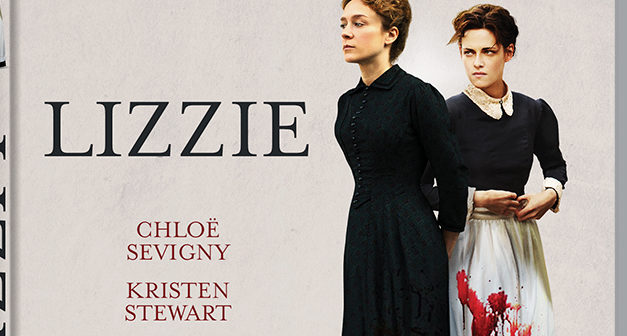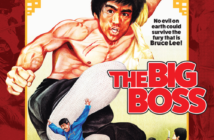How important is a definitive truth when a story becomes folklore? In a sense as artists mine the same subjects again and again over the years, the truth (if it ever really existed) fades and we’re left with the predilections of the artist themselves – choosing to focus on (or perhaps cherry pick) the material and themes that resonate more powerfully with them.
The Lizzie Borden murders are a prime example of this. They’ve been a source of public fascination since she was accused of the brutal murders of her father and stepmother in 1892. The Borden family’s affluence and the media’s salacious portrayal pitched the trial as a referendum on class, suggesting that only those in the lower strata could be capable of such barbarity. Thematically it’s rich for the pickings, from newspaper articles, books, ballet’s, and podcasts we’ve repeatedly returned to the scene of the crime. So it’s clear that 128 years later we still can’t look away, but you have wonder how relevant a twenty first century lens will be.
Elizabeth Montgomery (Bewitched) starred as Lizzie in the 1975 telemovie Legend Of Lizzie Borden, whilst more recently Christina Ricci took a swing at Lizzie in Took an Axe, referencing the popular schoolyard chant. Now it’s Chloe Sevigny’s turn in both the title role and as producer. It bills itself as a biopic, but this new take focuses more on the repressive nature of Borden’s home life and views the murders as a form of cathartic freedom. Sevigny portrays Borden as spirited and wilful, albeit downtrodden, repeatedly colliding with the autocratic expectations of her father (Jamey Sheridan/Law and Order: Criminal Intent). Her father is very much the patriarch and his will is the prevailing current within the household. Lizzie, her sister (an under utilised Kim Dickens/ Fear The Walking Dead), and stepmother (Fiona Shaw/ Killing Eve), are merely chattels, aware that at any time they could be sent away against their will. Perhaps least powerful is the watchful new maid Bridget (Kristen Stewart), whose class and gender conspire to render her voiceless.
A lot has been made of the romance between Borden and Bridget, where tenderness and understanding of their mutual repression boils over into passion, yet in the main director Craig William Macnell (The Boy) keeps things quite restrained. In other hands you could imagine Bridget as a heartless manipulator seducing a naïve Borden to her wicked ends, yet here Bridget remains little more than a passive observer and quiet confidante.
It’s a curious film. It seems every effort has been made to stay above the hysteria, to not descend in the more salacious aspects of the case. So whilst the murders are very much painted as an exercise in freedom and empowerment it does feel like something is lacking. Perhaps it’s cinematic judgement. What do the filmmakers think? Should this even matter?
It’s very much filmed from the viewpoint of Borden, detailing all of her daily little humiliations, and whilst episodes with her father, uncle and stepmother alongside Sevigny’s compassionate portrayal, all serve to build empathy with her plight, the murders are portrayed as calculated and brutal. This kind of even hand is quite refreshing, there is no sledgehammer here. Nothing is wrapped up and the viewer remains conflicted. It makes a refreshing change. Perhaps this is what a twenty first century lens looks like.




